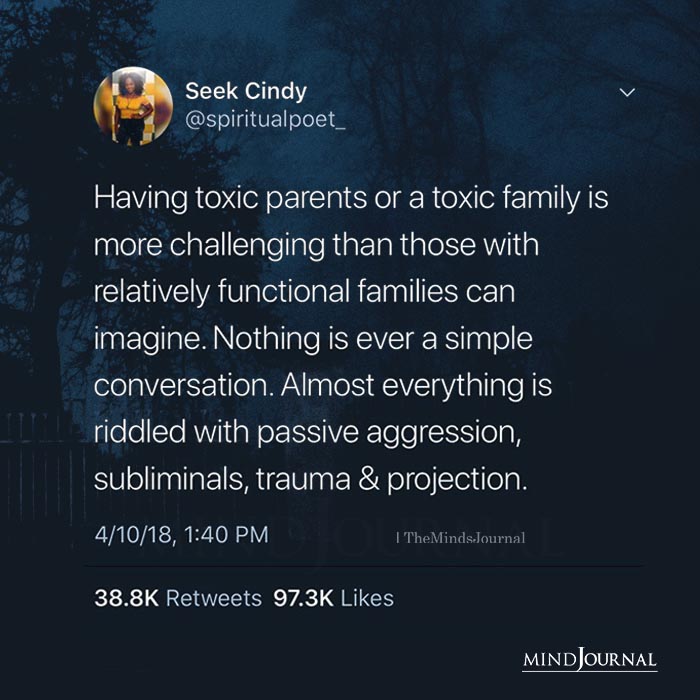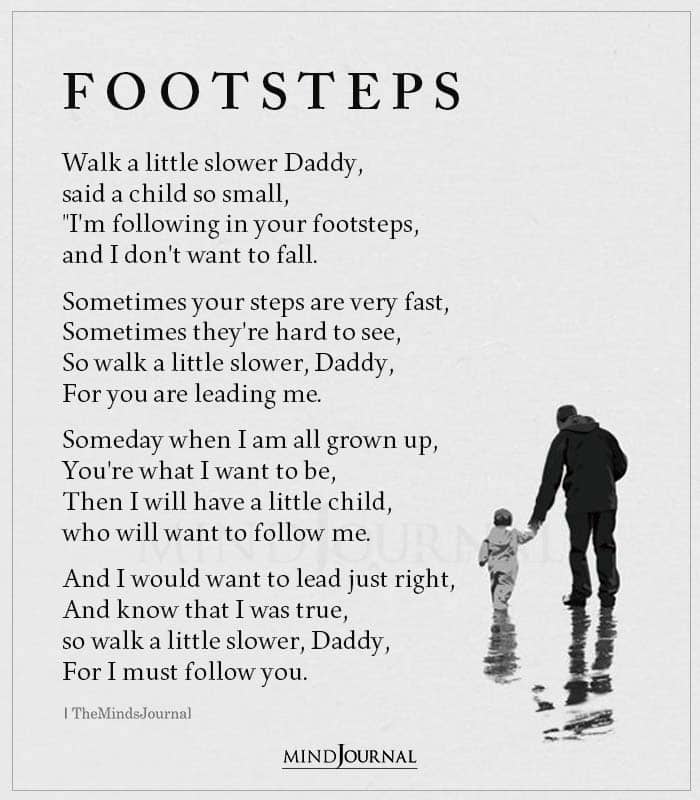A person with values is created by following his father’s footsteps. Father’s teach by example. We learn values, discipline and the importance of hard work and sacrifices – all thanks to our fathers. However, an absent father can lead to daddy issues. But what are daddy issues?
Unfortunately, some children have poor relationships with their fathers, some have toxic relationships, while some others have no relationship with their dads at all. Troubled relationships with either parent can have a significant negative effect on children. However, having a difficult relationship with your dad can often lead to an emotional and psychological phenomenon colloquially known as “daddy issues.”
While not an officially recognized mental condition, it is still a well-documented emotional issue. Although mostly associated with women, men can also experience daddy issues. It can affect a person’s mindset, attitude, personality, career choices and intimate relationships in adulthood., regardless of their gender.
Today let us delve into the psychology behind this phenomenon and explore what are daddy issues in men and women, symptoms of daddy issues, causes of daddy issues, daddy issues in a relationship and how to resolve daddy issues.
What Are Daddy Issues?
Daddy issues, also known as “Father Complex,” refer to mental and emotional issues that occur due to an unhealthy, strained, toxic or absent relationship with one’s biological father during their childhood.
While it is popularly believed that women experience this psychological challenge more than men, in reality, it is not gender specific and can affect men and women equally. Moreover, although having daddy issues can affect someone’s life in multiple aspects, it is not considered as a serious mental health condition.
Related: Why Is A Father Figure Important? 6 Ways He Shapes His Daughter’s Life
However, there is some ambiguity regarding the origin of the term “daddy issues”. It is believed that the term has been derived from the concept of the “Father Complex” which was developed by renowned neurologist and psychoanalyst Sigmund Freud.
However, the term basically describes a dysfunctional father-daughter or father-son relationship that can impair an individual’s mental and emotional health and affect their social behavior and interpersonal relationships.
Such unhealthy paternal attachment can result in difficulties with setting healthy boundaries, trusting others, low self-esteem and lack of intimacy in romantic relationships as adults.

Example of Daddy Issues in Men
To better understand what are daddy issues in men, let us consider the following case study of Jason.
Jason never truly had a healthy or close relationship with his father while growing up. His father had very little contact with him during his childhood as his father left the family right after he was born. Unsurprisingly, Jason experienced an emotional void all his life due to a lack of a father figure and paternal support.
During his adulthood, Jason struggled with emotional detachment which made it difficult to build intimate relationships. Due to his daddy issues, he had trouble with being vulnerable with his partners and led to a lack of emotional connections.
As he had an intense fear of abandonment, he always refrained himself from fully committing to a relationship and maintained a distance from his partners.
Moreover, due to his unresolved emotional issues and low self-worth, he also struggled with being unnecessarily angry and aggressive and would react in an extreme manner at the slightest provocation.
The absence of his father meant there was a lack of a positive male role model in Jason’s life. As a result, he failed to learn how to control his emotions, express them in a positive way and resolve conflicts in relationships in a healthy manner.
However, seeking therapy helped Jason to pursue self-development and experience healing. He managed to regulate his emotions, build positive relationships, and eventually overcame his fear of being a father himself.
Men with daddy issues, which is quite common, often face unique challenges due to social expectations on men to be masculine in a particular way. Sadly, this can make things worse and impair their abilities further to overcome these challenges. This is why it is important to understand what are daddy issues.
Example of Daddy Issues in Women
Jane grew up with a father who was emotionally distant and often absent from her life due to his work. As a result, she developed a strong desire for her father’s affection and attention.
In adulthood, she preferred to be in romantic relationships with older men who are emotionally unavailable, men who are a shadow of her own father, to fill an empty void in her heart.
Jane is usually involved in unhealthy and toxic relationships, where she seeks validation and love from men who simply cannot provide the emotional support that she seeks.
Such behavioral patterns are strongly influenced by unresolved feelings towards her father and have affected her attachment style as well as self-esteem.
Symptoms of Daddy Issues
Healing and personal growth can begin only when we learn how to identify the signs and symptoms of daddy issues. Here are some of the most common signs that you be aware of –
1. Issues with Trust and Intimacy
People with daddy issues often find it difficult to connect deeply with others as they have a serious problem with trusting people, even loved ones. Due to their deep seated fear of rejection or abandonment, they are unable to build meaningful and intimate relationships.
2. Low Self-Esteem and Self-Worth
Having an absent or toxic father can significantly affect a person’s self-confidence, self-esteem and their sense of self in a negative way. They may constantly feel inadequate, not good enough, feel insecure and persistently seek external validation.
3. Attachment Issues
Having Father Complex can lead to insecure attachment styles, which can manifest as avoidant or anxious tendencies.
Such behaviors are typically rooted in their intense fear of commitment and rejection, & their habit of becoming clingy and needy in relationships as they desperately seek security and affection from their parents.
Related: 5 Significant Ways A Father Impacts His Child’s Life
4. Trouble Setting Boundaries
Having a toxic or abusive relationship with one’s father can affect one’s ability to understand and apply healthy yet strict boundaries. This can make a person have difficulty in being assertive, not only in relationships but in their life.

5. Emotional Detachment
Individuals with daddy issues have trouble expressing their innermost emotions, being vulnerable or developing deep emotional bonds due to unhealthy father-child relationships.
As they are emotionally detached, such people are often incapable of being fully invested in romantic relationships.
6. Anger and Aggression
Due to the deep void left in their hearts, women and men with unresolved paternal attachment issues tend to be highly aggressive and angry most times. This often acts as an unhealthy coping mechanism that helps to protect them from their fear of rejection and low self-esteem.
7. Fear of Becoming a Father
When a man has daddy issues, he may become afraid of becoming a father themselves. This is because they are afraid of repeating the same toxic patterns with their own children as their father did with them.
They are often afraid of not being able to meet the expectations of their loved ones about what a good father is supposed to be like.
Causes of Daddy Issues
To fully understand what are daddy issues, we also need to explore the causes of daddy issues along with the symptoms of daddy issues as it can shed some much needed light on the topic on daddy issues in men and women. Here are a few common factors:
1. Absentee Father
Not having a father as a child is undoubtedly one of the worst experiences of life. Whether due to death, divorce or separation, or intentional physical absence, when a child grows up without their biological father or a father figure it can greatly impair their emotional development.
Not having a father around as a kid can result in a profound sense of emotional loss, abandonment, rejection and result in unmet emotional needs.
2. Neglect or Abuse
While not having a father as a child can be a terrible experience, having a toxic and abusive father can be even worse. When a child is constantly criticized, neglected, rejected and physically, mentally and verbally abused, they can develop serious and concerning psychological issues that can persist even in their adulthood.
Mistreatment can eat away the child’s identity, self-esteem, their ability to trust loved ones and hamper their ability to build healthy relationships in future. This is one of the main causes of daddy issues.
3. Lack of a Role Model
Our fathers are our first and most important role model who teaches us values, discipline, hard work, love and crucial life lessons through example. However, when a father figure is absent in a child’s life, they are robbed of the opportunity to learn valuable life skills and lessons.
Not having a positive role model during developing years can affect the kid’s sense of self and keep them from forming healthy relationships with family, friends, peers and even romantic partners in adulthood.
Related: Narcissistic Fathers: The Dark Shadow They Cast From Childhood To Adulthood
Daddy Issues in a Relationship
When a person experiences Father Complex or daddy issues, it can have a direct adverse impact on their intimate relationships, leading to repeating negative patterns and daddy issues in a relationship, such as –
1. Attraction to Unavailable Partners
Individuals with unresolved paternal attachment issues tend to be inherently attracted to toxic, narcissistic partners repeatedly. They have this tendency of being in a relationship with partners who mirror their father’s behaviors, such as being emotionally unavailable or distant.
This behavioral pattern is driven by a subconscious effort to relieve and resolve childhood emotional wounds.

2. Power Struggles and Codependency
Daddy issues in men and women can also lead to power struggles in adult intimate relationships. Individuals who had a toxic relationship or no relationship with their father can be rather dominating in relationships.
However, contrarily, they may become codependent, and seek excessive security, reassurance and validation from their partners, resulting in toxic and imbalanced power dynamics.
3. Trust and Intimacy Challenges
As individuals with daddy issues have grown up in the absence of a father figure, they have an intense fear of abandonment and rejection. This affects their ability to trust their partners, making them emotionally distant or avoidant in relationships.
They may desperately try to protect their feeble self-esteem, wounded emotions and vulnerability by avoiding genuine connections and by building walls around their emotions.
How to Resolve Deep-rooted Daddy Issues
Daddy issues in a relationship typically run deep and it is often a great idea to seek professional help to resolve it in the long run. However, there are certain strategies that can help you overcome it, move on and heal.
Now that we know what are daddy issues, here’s how you can start your healing journey –
1. Self-Awareness and Acceptance
Be aware of your Father Complex and accept that your thoughts, behaviors, personality and relationships are influenced by your daddy issues.
Once you are aware of what is holding you back, you will be better able to find a solution and heal your unhealthy thought and behavior patterns that are driven by your childhood experiences.
Related: What Are Daddy Issues? How Fathers Impact A Daughter’s Romantic Relationships
2. Seek Professional Support
As mentioned earlier, seeking therapy is the best thing you can do for healing from daddy issues. Therapy offers a safe space for you to express your innermost feelings and work through your psychological and emotional issues under the guidance of a mental health professional.
A qualified counselor or therapist can empower you to navigate your complex thoughts, emotions and beliefs, identify your triggers, and help you build coping mechanisms to overcome your issues in a positive way.
3. Inner Child Healing
Often daddy issues persist because our inner child is left wounded, unloved, and uncared for. However, healing your inner child can help you address your suppressed and unresolved feelings.
Regularly practicing journaling, meditation, affirmations, visualizations, and engaging in self-care can help you heal your inner child with self- love and nurturing. So make sure to prioritize self-care and self-love, practice self-compassion, and do things that make you happy. This is how to resolve daddy issues.
4. Develop Healthy Relationships
Instead of being insecure in relationships, men and women with daddy issues should focus on building positive and healthy relationships that are based on love, empathy, understanding, open communication, trust, and mutual respect.
Spend more time with people who love and support you at your lowest and be there for them when they need you.

Takeaway
Daddy issues can be a rather complicated experience and leave a lasting impact on one’s life. It can affect our adult personality, our mental state and our relationships. This is why it is crucial to understand what are daddy issues and actively work towards learning how to resolve daddy issues.
Simply by embracing self-discovery and self-awareness, you can overcome daddy issues and embrace transformation and healing.
Related: 3 Important Tips For Dealing With Your Daddy Issues
Frequently Asked Questions (FAQs):
What does it mean to have daddy issues?
Daddy issues refer to mental and emotional challenges caused by absent or strained father-child relationships, which negatively affects their mental health and relationships.
What to say to someone who has daddy issues?
You can offer kindness, empathy, actively listen without judgment, and motivate them to seek therapy for healing and better relationships.
How do you fix daddy issues?
Be self-aware, seek therapy, explore self-reflection, build positive relationships, and build emotional resilience to overcome the effects of unhealthy paternal dynamics.










Leave a Reply